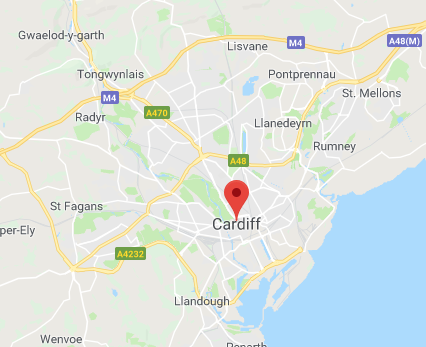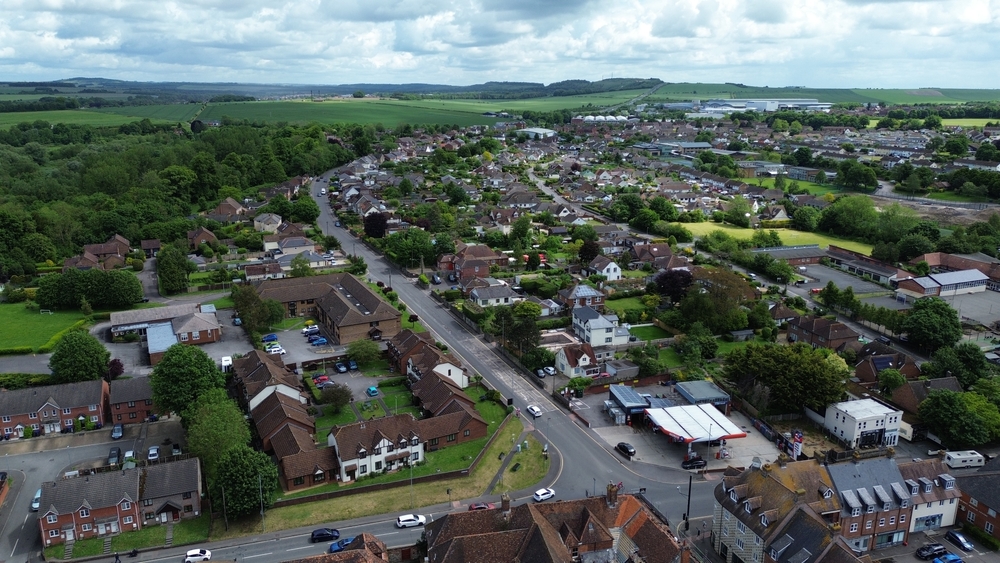
Our advanced driving courses are available across all of South Wales, with Cardiff being the most popular area for training.
We assist both businesses and private individuals in becoming safer, more skilled drivers. While Cardiff, with its busy urban roads, is a key location, we also venture beyond the city to tackle more challenging rural roads, which make up a significant portion of our training. However, urban driving is also a critical aspect of the course. We focus on helping drivers navigate lower-speed environments, improve pedestrian and cyclist awareness, and handle dense traffic. We frequently use Cardiff city center for this, along with nearby areas such as Llanishen, Rumney, and St Fagans, to provide a comprehensive urban driving experience.
Remember – All our courses are bespoke to your exact needs and requirements, for both business and private customers.
With rural driver training, we head north towards Monmouth, Abergavenny or west towards the Carmarthen area via the A48, M4. All these areas have great rural roads, where we help drivers with car control, observation and overall safer driving.
Rural roads are the most dangerous roads in the UK and so it makes sense to ensure a driver is safe on these roads. For motorway training in Cardiff, we conveniently have the M4, which runs from west of Swansea, east towards London. Sometimes we will move onto the M5, but this depends on the course duration and if motorway training is to play a key part in the course.

We offer a range of bespoke driving courses, which include:
* Business drivers, car and van
* Younger drivers
* Pre-court assessments
* Performance car training
* Confidence training
* Motorhome training
* General advanced and defensive courses
* Motorway training
* UK Familiarisation
We have full UK coverage, and we come to you. All training takes place in your own vehicle, and training, whether for a business or private customer, is bespoke to your specific needs.
During our advanced training, we cover a wide range of things, bespoke to the needs of each driver:
* Looking at a driver’s own specific driving style, mileage, types of roads and driving history to make a bespoke training plan
* Creating increased powers of anticipation and planning
* Being aware of speed limits and controlling speed
* Improving a driver’s attitude
* Improved driving on motorways,
* Increased skills on rural roads
* Dealing with driving in the town, with cyclists and pedestrians
* A better understanding of the reasons for road rage
* Reversing and parking
* Driving in dangerous weather, such as ice, snow, fog, rain, or poor visibility
* Save money at the pumps! An advanced driving style can save 20% on your fuel bills
* How to better anticipate the actions of other drivers – to help prevent things from “just suddenly happening” !
We currently offer a range of courses based on time. These are designed for drivers of all abilities, experience and budget ranges:
* 3.5hr – Our shortest course is ideal for those who need a short session for a range of reasons. It is also popular for company clients who are training many drivers
* 2 x 3.5hr – If a full day is too much and a half-day is not long enough, then our 2 x 3.5hr session is a great alternative. It allows time to absorb what has been taught in the first session, and to then carry on and progress in the final session
* 7hr full day – A full day can be hard for some drivers, but for others it is a great duration as it gets the training completed in one day, and is cheaper than splitting it over two sessions.
* For those who want more of a comprehensive session, we offer 3 – 4 and 5 x 3.5hr sessions. Designed for those with significant issues that need addressing or for those who simply want the maximum level of bespoke one-to-one training possible.

We appreciate that you have a choice when it comes to driver training. Over the years, we have worked hard to ensure we differentiate ourselves based on service and quality of training. Training with us means you benefit from:
* One-to-one driver training
* Personal account management, a member of our team will get to know you and your specific needs.
* National UK coverage – we come to you for the training.
* Only the most dedicated, professional, advanced driving tutors work with us.
* All tutors are handpicked and are Driver & Vehicle Standards Agency-registered.
* Full reporting for each person taking our course is sent via email after the course.
Contact us:
While we have tried to outline as much info as possible, there are possibly more things you want to learn about. Please call or email us, we aim to get back in touch within 1 hour during working hours if you decide to email. If you want to get a course arranged quickly and are looking to train four drivers or fewer, then you can do so online – simply go to www.advanced-driving.co.uk/book
Cardiff, being a bustling capital city, has several busy roads that are key to its transportation network. Some of the most well-known busy roads in Cardiff, many of which we provide driver training on include:
-
A48 (Eastern Avenue) – This major route connects Cardiff to the M4 and is one of the busiest roads in the city, often congested during rush hours.
-
M4 Motorway – Running just south of the city, the M4 is a crucial route for both local traffic and those traveling through Cardiff, often experiencing heavy traffic, especially near the Cardiff West Interchange.
-
Cowbridge Road East/West – These roads run through some of Cardiff’s busiest districts, including Canton and Victoria Park, and are often congested, particularly during peak times.
-
Cardiff Bay Road – Leading into the heart of Cardiff Bay, this road sees significant traffic, especially during events or the tourist season.
-
Bute Street – Situated near Cardiff Bay, Bute Street is a busy route connecting various parts of the city, particularly popular with commuters.
Road Safety Risks and Information – Cardiff
Cardiff is the capital city of Wales and is set on the M4 motorway linking London to Swansea and the rest of Wales. The A48 motorway is a small patch of motorway running into the centre of Cardiff from the M4, and both of these routes have high volumes of severe and often fatal collisions running the whole length throughout the Cardiff area.
There are several collision sites noted at the junction where the A48 meets the M4, a few being fatal, and this is why it is essential to understand how joining fast motorways requires the correct speed and observations. The Pentwyn Interchange of Junction 30 and Cardiff Gate, on the M4, is a large roundabout joining the A4332 to the A48, and this has many collisions, possibly due to poor lane navigation. Junction 32, the Coryton Roundabout, is a considerable and challenging interchange linking the A470 and the A4054, and this has been the site of numerous collisions over the past few years.
The A4161 runs through the centre of Cardiff and links the A48 at both ends; it also has many public transport routes using the roads as well. Most collisions found here are around the traffic light and roundabout junctions, such as Station Terrace and Park Place. This is a similar story in all urban areas across the city, especially during rush hour traffic, where drivers are all trying to get to their destinations in a hurry. Lack of patience and observation can cause many collisions during busy times each day, and the roads that have public transport routes have especially high rates, such as Castle Street and Duke Street. The A4232 links the Cardiff Docks to the A48, and this route carries much haulage traffic,. The Culverhouse Cross roundabout is an especially hazardous interchange to be wary of if travelling across.
This is a small selection of crash sites in Cardiff. Please contact us if you have any specific roads you travel on in the area and are keen to discover what parts are at higher risk of collisions. We offer a free-of-charge service to anyone interested.
